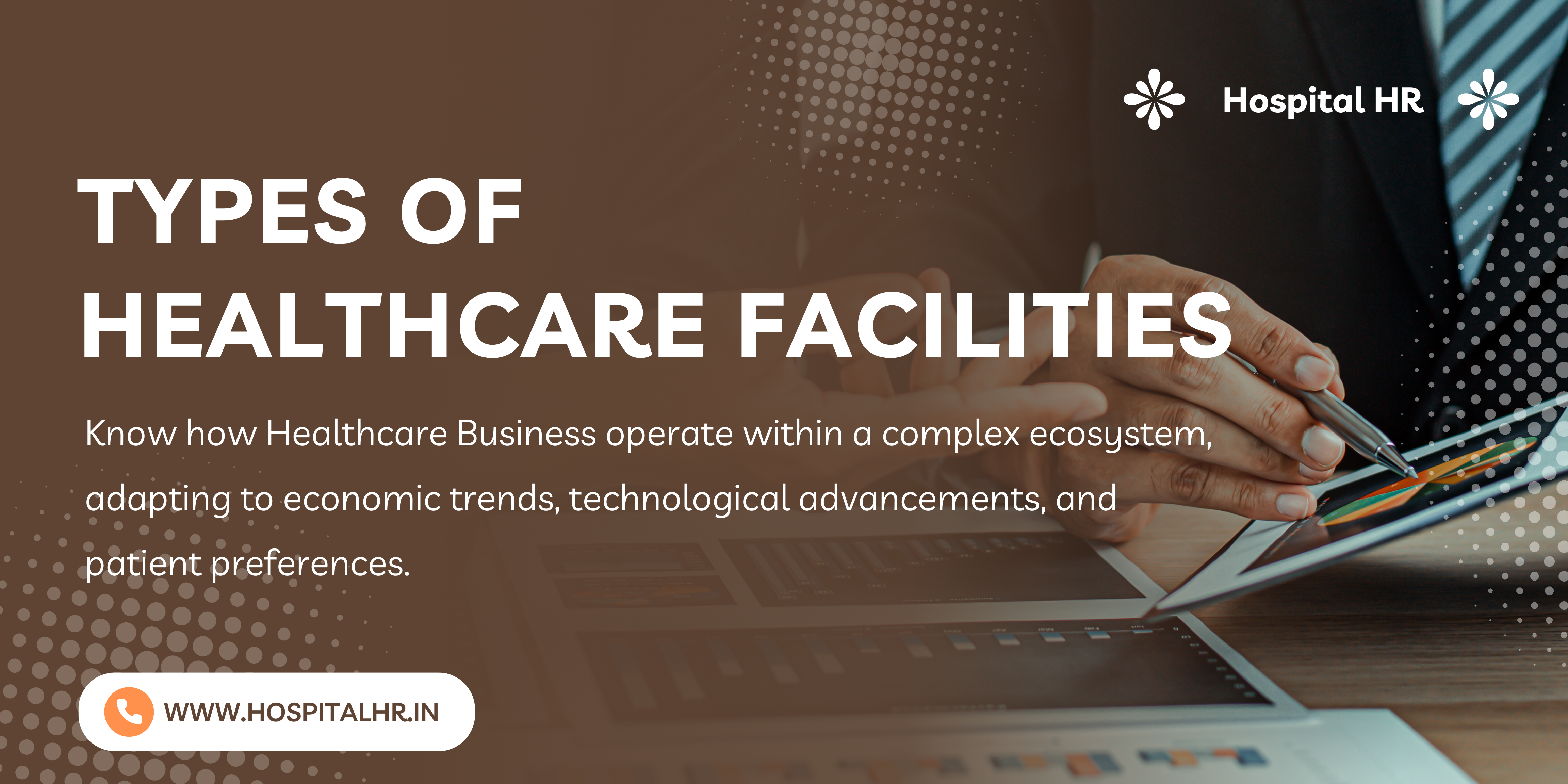Various Types of Healthcare Facilities / Clinical Establishments
- Hospital: A large healthcare facility offering comprehensive medical care, including emergency services, surgeries, and inpatient care.
- Clinic: A facility providing outpatient care for diagnosis, treatment, and preventive services.
- Nursing Home: A long-term care facility providing residential care and assistance with daily activities for elderly or disabled individuals.
- Urgent Care Center: A medical facility for treating non-life-threatening emergencies and urgent health conditions outside of regular office hours.
- Rehabilitation Center: A facility offering physical, mental, or addiction therapy to help individuals recover from illnesses, injuries, or substance abuse.
- Day Surgery Center: A medical facility where patients undergo minor surgeries and procedures that don't require an overnight stay.
- Ambulatory Surgical Center (ASC): A specialized facility providing outpatient surgery with short recovery times, eliminating the need for hospital stays.
- Specialty Clinic: A clinic focused on treating specific health conditions, such as cardiology, orthopaedics, or dermatology.
- Hospice Care: A service providing end-of-life care and support to patients with terminal illnesses and their families.
- Mental Health Facility: A healthcare facility specializing in the treatment and support of individuals with mental health disorders.
- Diagnostic Center: A facility equipped for performing medical tests and imaging, such as labs and radiology centres.
- Mobile Health Unit: A healthcare facility on wheels, offering medical services in remote or underserved areas.
- Primary Care Office: A medical office where general health issues are managed by family physicians or general practitioners.
- Physical Therapy Clinic: A specialized clinic offering rehabilitation services to improve physical mobility after injury or surgery.
- Retirement Home: A residential facility providing housing and basic care services for elderly individuals who are generally independent but need some assistance.
- Birthing Center: A specialized facility offering maternity care, childbirth, and postnatal services, usually for low-risk pregnancies.
These types of facilities cater to different healthcare needs, from urgent care to specialized treatment or long-term residential support.
3 Types of Facilities
The Above Types of Facilities are segregated into 3 Types as per Service Provider Levels and Availability of Consultants and Medical Equipments...
Healthcare facilities can be categorized into different levels of care, namely primary, secondary, and tertiary healthcare. Here's how they relate to the types of healthcare facilities mentioned:
- Primary Healthcare: This is the first point of contact in the healthcare system. It focuses on overall health maintenance, prevention, and basic medical care for non-complicated conditions.
- Examples:
- Primary Care Office: Provides general health services, routine checkups, and preventive care.
- Clinic: Offers outpatient care for common illnesses and preventive health services....
- ...
- Secondary Healthcare: This level involves more specialized care, typically provided by professionals who do not have first contact with patients. It often involves referral from primary care providers for more specific diagnoses and treatments.
- Examples:
- Urgent Care Center: Offers care for non-emergency but urgent medical conditions.
- Specialty Clinic: Provides focused care for specific health conditions, such as cardiology, orthopaedics, or dermatology.
- Day Surgery Center: A facility for outpatient surgeries that require more specialized care than primary care can provide.
- ...
- Tertiary Healthcare: This is advanced and highly specialized care often requiring sophisticated technology and expertise, generally provided in major hospitals or medical centers.
- Examples:
- Hospital: A comprehensive healthcare facility offering specialized surgeries, advanced diagnostic services, and critical care.
- Rehabilitation Center: Offers intensive post-acute care for patients recovering from serious conditions.
- Mental Health Facility: Provides specialized treatment and therapy for serious mental health conditions.
- Specialty Clinics: High-level, specialized treatment centers (e.g., Cancer Centers of Excellence, Cardiac Centers).
- Hospice Care: Provides advanced palliative care for end-of-life patients in a specialized setting.
In summary:
- Primary Care focuses on general health maintenance and prevention.
- Secondary Care involves specialized services and treatments.
- Tertiary Care is the highest level of specialized care, requiring advanced technology and expertise.
This classification helps understand the level of care provided and where each type of healthcare facility fits within the broader healthcare system.
** In addition, Various Quality Indicators Can also be considered for the Evaluation and Understanding of Departmental Performances.
Conclusion: By adopting such technologies, healthcare organisations can align payroll processes with international standards like NABH and JCI, enhancing both compliance and employee satisfaction.
-> For more details or assistance, platforms like hospitalhr.in provide tailored solutions for Indian healthcare institutions


Comments (0)
No comments yet. Be the first to comment!